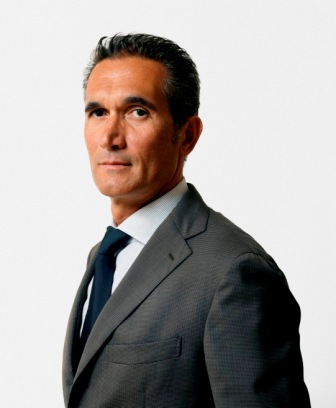Studying at the University of Verona
Here you can find information on the organisational aspects of the Programme, lecture timetables, learning activities and useful contact details for your time at the University, from enrolment to graduation.
Academic calendar
The academic calendar shows the deadlines and scheduled events that are relevant to students, teaching and technical-administrative staff of the University. Public holidays and University closures are also indicated. The academic year normally begins on 1 October each year and ends on 30 September of the following year.
Course calendar
The Academic Calendar sets out the degree programme lecture and exam timetables, as well as the relevant university closure dates..
| Period | From | To |
|---|---|---|
| 1st semester | Oct 1, 2009 | Dec 19, 2009 |
| 2nd semester | Feb 22, 2010 | May 22, 2010 |
| Corsi intensivi estivi (sede di Canazei) | Jul 11, 2010 | Aug 7, 2010 |
| Session | From | To |
|---|---|---|
| Sessione invernale | Jan 7, 2010 | Feb 20, 2010 |
| Sessione estiva | May 24, 2010 | Jul 10, 2010 |
| Sessione autunnale | Sep 1, 2010 | Sep 30, 2010 |
| Sessione straordinaria | Dec 1, 2010 | Dec 20, 2010 |
| Period | From | To |
|---|---|---|
| Immacolata concezione | Dec 8, 2009 | Dec 8, 2009 |
| Vacanze Natalizie | Dec 21, 2009 | Jan 6, 2010 |
| Vacanze Pasquali | Apr 2, 2010 | Apr 6, 2010 |
| Festa dei Lavoratori | May 1, 2010 | May 1, 2010 |
| Santo Patrono | May 21, 2010 | May 21, 2010 |
| Festa dellla Repubblica | Jun 2, 2010 | Jun 2, 2010 |
| Vacanze estive | Aug 9, 2010 | Aug 15, 2010 |
Exam calendar
Exam dates and rounds are managed by the relevant Economics Teaching and Student Services Unit.
To view all the exam sessions available, please use the Exam dashboard on ESSE3.
If you forgot your login details or have problems logging in, please contact the relevant IT HelpDesk, or check the login details recovery web page.
Academic staff
 silvano.corbella@univr.it
silvano.corbella@univr.it
 massimo.guerriero@univr.it
massimo.guerriero@univr.it

Magazzini Laura
 laura.magazzini@univr.it
laura.magazzini@univr.it
 045 8028525
045 8028525
 martina.menon@univr.it
martina.menon@univr.it
 maurizio.pegrari@univr.it
maurizio.pegrari@univr.it
 maurizio.pizzamiglio@univr.it
maurizio.pizzamiglio@univr.it
 nicola.sartor@univr.it
nicola.sartor@univr.it
 fabio.sartori@univr.it
fabio.sartori@univr.it
Study Plan
The Study Plan includes all modules, teaching and learning activities that each student will need to undertake during their time at the University.
Please select your Study Plan based on your enrollment year.
1° Year
| Modules | Credits | TAF | SSD |
|---|
Business administration
2° Year activated in the A.Y. 2010/2011
| Modules | Credits | TAF | SSD |
|---|
3° Year activated in the A.Y. 2011/2012
| Modules | Credits | TAF | SSD |
|---|
| Modules | Credits | TAF | SSD |
|---|
Business administration
| Modules | Credits | TAF | SSD |
|---|
| Modules | Credits | TAF | SSD |
|---|
Legend | Type of training activity (TTA)
TAF (Type of Educational Activity) All courses and activities are classified into different types of educational activities, indicated by a letter.
Economic history (2011/2012)
Teaching code
4S00375
Teacher
Coordinator
Credits
9
Language
Italian
Scientific Disciplinary Sector (SSD)
SECS-P/12 - ECONOMIC HISTORY
Period
Second semester dal Feb 27, 2012 al May 25, 2012.
Learning outcomes
Contemporary economy displays aspects of both innovation and continuity. Understanding innovation and continuity requires the knowledge of what has occurred in the long run in order to establish and assess, autonomously and critically, the immutable elements and changes in global economy The aim of the course is, therefore, to provide students with the fundamental tools necessary to reach a good knowledge and awareness of the events they are currently witnessing and of those they may experience in the future. In addition to this, the course will help students to understand the great importance of economic history to the analysis of the systemic trend of past economic crises whose results, contrary to what most economists maintain, make it possible to perceive a new crisis approaching; thus, such crises as the one we are experiencing are foreseable.
In the contemporary capitalistic system, despite the various specificities, crises are the rule and it should be advisable not to forget it. Obviously, crises may vary according to their importance and duration and the main goal of economic history is to establish their constituents, development and evolution, while awaiting the next one.
The course is divided into two parts: the first one aims to define the fundamental features of economies in the contemporary and modern Age, from a non-Eurocentric point of view, in order to gather the information necessary for a better understanding of the second part. The latter deals with contemporary finance in its relation with the economic and cultural factors which may explain how wrong theoretical notions have given birth to an inappropriate political line.
Examination Methods
The exam will consist in an interview aiming to assess the knowledge of the topics discussed during the course, the overall maturity of the candidate and his capability of personal reworking using a correct terminology.
Type D and Type F activities
Modules not yet included
Career prospects
Module/Programme news
News for students
There you will find information, resources and services useful during your time at the University (Student’s exam record, your study plan on ESSE3, Distance Learning courses, university email account, office forms, administrative procedures, etc.). You can log into MyUnivr with your GIA login details: only in this way will you be able to receive notification of all the notices from your teachers and your secretariat via email and soon also via the Univr app.
Graduation
List of theses and work experience proposals
| theses proposals | Research area |
|---|---|
| Tesi di laurea - Il credit scoring | Statistics - Foundational and philosophical topics |
| La performance delle imprese che adottano politiche di Corporate Social responsibility | Various topics |
| La previsione della qualita' dei vini: Il caso dell'Amarone | Various topics |
| Proposte di tesi | Various topics |
| Tesi in Macroeconomia | Various topics |
| tesi triennali | Various topics |























